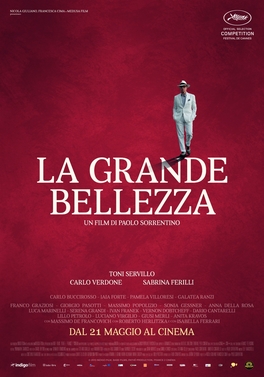A blog formerly known as Bookishness / By Charles Matthews
"Dazzled by so many and such marvelous inventions, the people of Macondo ... became indignant over the living images that the prosperous merchant Bruno Crespi projected in the theater with the lion-head ticket windows, for a character who had died and was buried in one film and for whose misfortune tears had been shed would reappear alive and transformed into an Arab in the next one. The audience, who had paid two cents apiece to share the difficulties of the actors, would not tolerate that outlandish fraud and they broke up the seats. The mayor, at the urging of Bruno Crespi, explained in a proclamation that the cinema was a machine of illusions that did not merit the emotional outbursts of the audience. With that discouraging explanation many ... decided not to return to the movies, considering that they already had too many troubles of their own to weep over the acted-out misfortunes of imaginary beings."--Gabriel García Márquez, One Hundred Years of Solitude
Sunday, November 6, 2016
The Great Beauty (Paolo Sorrentino, 2013)
The great beauty referred to in the title of Paolo Sorrentino's film is Rome itself, which for millennia has transcended the ugliness that has overrun its seven hills. It's a city whose beauty and ugliness are seen in the film from the point of view of Jep Gambardella (Toni Servillo), who is celebrating his 65th birthday as the film begins. Jep first received acclaim 40 years earlier for a well-received novella, but the rest of his life has been spent as a celebrity journalist, interviewing and gossiping about the rich and famous. This career has earned him his own fame and fortune -- he lives in a luxurious apartment whose balcony overlooks the Colosseum. He's a bit like a straight Roman Truman Capote. The Rome in which Jep moves is filled with absurdity and excess: a performance artist who runs headlong into an ancient aqueduct; a little girl who has made millions by splashing canvases with paint and then smearing and tearing at them in a tantrum; a doctor who maintains a kind of assembly-line botox clinic in which patrons take numbers as if they were waiting in a delicatessen; a saintly centenarian Mother Teresa-style missionary whose spokesman is an oily dude with a shark-toothed grin; an archbishop considered next in line for the papacy who can only talk about food; and hordes of glitterati who spout inanities that they think will pass for wit. The Great Beauty is a satire, of course, but oddly it's a satire with heart: Jep Gambardella's long-since-broken heart. Servillo is terrific in the key role: elegant and cynical, but also capable of exposing idiots for what they are. Jep and the film in which he appears have obviously been compared to Marcello Mastroianni's character in La Dolce Vita (Federico Fellini, 1960), but Jep is less jaded than Marcello, less ground down by the decadence. And Sorrentino's view of his Rome is more genially ironic than Fellini's carnival of grotesques. Beautifully filmed by Luca Bigazzi, with a score by Lele Marchitelli augmented with works by contemporary composers like David Lang, Arvo Pärt, John Taverner, Henryk Górecki, and Vladimir Martynov, The Great Beauty was a deserving winner of the 2013 Oscar for foreign-language film.
Links:
Arvo Pärt,
David Lang,
Henryk Górecki,
John Taverner,
Lele Marchitelli,
Luca Bigazzi,
Paolo Sorrentino,
The Great Beauty,
Toni Servillo,
Vladimir Martynov
Subscribe to:
Posts (Atom)
